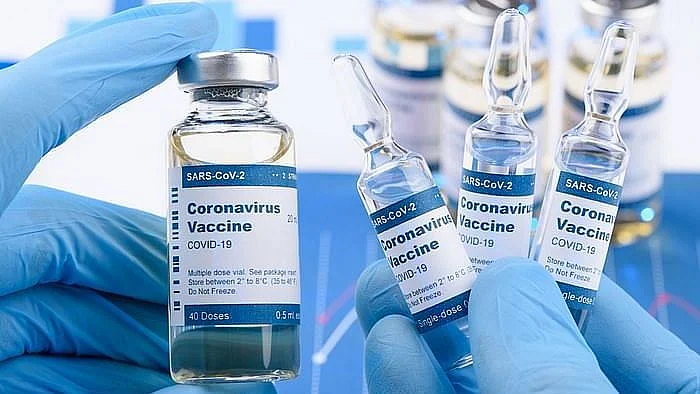FAQ: How Effective Are COVID Vaccines Against Delta Variant?
A recent study found that the Pfizer vaccine is less effective against the Delta variant. What does this mean?

advertisement
A study published in The Lancet found that the Pfizer vaccine produces lower levels of antibodies against the Delta variant, or the B.1.617.2 variant – first found in India.
Another study by the INSACOG (Indian SARS-CoV-2 Genome Sequencing Consortia) and National Centre for Disease Control (NCDC) revealed that it was this variant that was behind the deadly second wave of the pandemic in India. The transmissibility of the strain is 50 percent more than that of the Alpha variant (B.1.1.7).
How effective is the Pfizer vaccine against the Delta variant? How do Indian vaccines like Covishield and Covaxin compare with each other in terms of antibody production? Here’s what the studies tell us.
What is the difference between vaccine ‘efficacy’ and vaccine ‘effectiveness’?
According to CDC, vaccine efficacy refers to how well a vaccine works in ideal conditions, such as that of clinical trials. Vaccine effectiveness measures how well a vaccine works in a real or typical setting, or in less than perfectly controlled conditions.
What does it mean when we say that a vaccine has a certain percent efficacy?
- Vaccine efficacy is the “relative reduction in the risk”.
- So when we say that a vaccine has 90 percent efficacy, for example, it means that whatever risk you had of contracting the infection becomes reduced by 90 percent post vaccination, explained an article in The Guardian.
- This does not mean that you have a 10 percent chance of getting COVID-19. The chance could be much lower than that.
How effective is the Pfizer vaccine against the Delta variant?
- A study published in The Lancet revealed that those fully vaccinated with the Pfizer vaccine are likely to produce five times lower levels of neutralising antibodies against the Delta variant (B.1.617.2).
- The tests conducted in the study showed reduced levels of antibody protection with age, especially over a period of time.
How effective is the Pfizer vaccine after one dose?
- The study found that 79 percent of the participants had neutralising antibodies against the original COVID strain after the first dose, but only 32 percent had them against the Delta variant, 50 percent against the Alpha variant and 25 percent against the Beta variant.
- An earlier study by Public Health England (PHE) found that a single dose of the Pfizer vaccine provided only 33 percent protection against symptomatic infection from the Delta variant.
Why does the number of antibodies produced matter?
- Neutralising antibodies are produced by B cells in the bone marrow in response to a pathogen or pathogen-simulating vaccine. They defend the body by neutralising or destroying the intruder.
- These antibodies can record the memory of pathogens and recognise them.
- Vaccines work by triggering the body’s immune response into producing specific antibodies to fight off a specific pathogen.
- Therefore, the number of antibodies produced by different vaccines is a good indicator of how effective they will be in providing protection against the virus.
Does this suggest that the gap between two doses of the vaccine should be reduced?
- The study in The Lancet said that the benefits of delaying the second dose need to now be weighed against the decreased efficacy in the short term, as the data shows.
- It also said that the data highlighted the need to increase vaccine supply and allow countries to extend second-dose protection as soon as possible.
- This does raise questions about the increased 12 to 16 weeks interval between the two Covishield doses, and whether India should consider reducing the gap.
Is the AstraZeneca/Covishield vaccine effective against the Delta variant?
- In a study led by Public Health England, it was found that two doses of the AstraZeneca (Covishield) vaccine are 60 percent effective against the Delta variant, as compared to its 66 percent effectiveness against the UK variant.
- The authors of the study have written that they anticipate higher levels of effectiveness against severe disease.
Is Covaxin effective against the Delta variant?
Covaxin offers protection against the Beta and the Delta variants of coronavirus, a joint study by researchers from Pune's National Institute of Virology, the Indian Council of Medical Research (ICMR) and Bharat Biotech has reportedly found.
The study, yet to be peer-reviewed, is based on samples from 20 people who have recovered from COVID and 17 people, 28 days after they received both the doses of Covaxin. According to the study, Covaxin demonstrated protective response against the two variants of concern.
Is there a difference in the antibodies produced by Covishield and Covaxin?
- According to a study of healthcare workers in India, a single dose of Covishield produced about 10 times the antibodies that Covaxin did, reported The Hindu.
- The second dose of Covishield produced six times more antibodies than that of Covaxin.
- However, breakthrough infections (testing positive two weeks after the second dose) were seen in 2.2 percent of those who received Covaxin and 5.5 percent of those who got Covishield, reported The Hindu.
(At The Quint, we question everything. Play an active role in shaping our journalism by becoming a member today.)